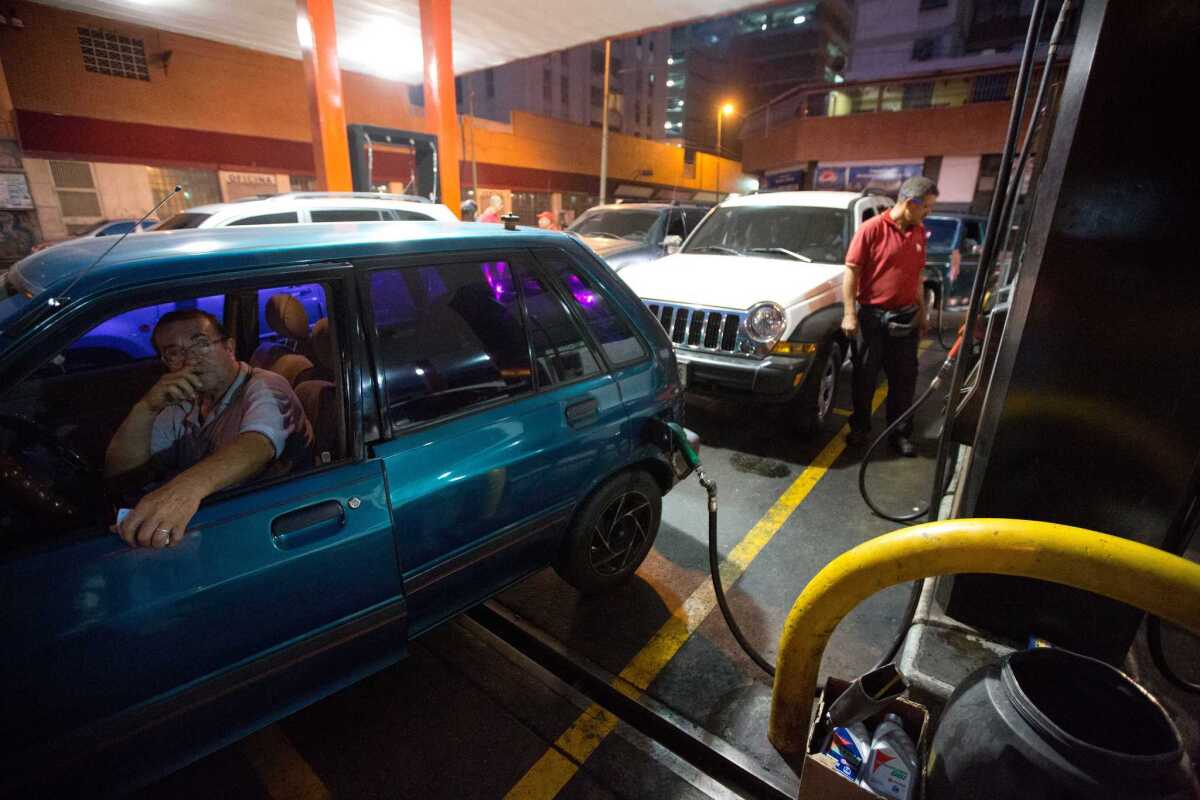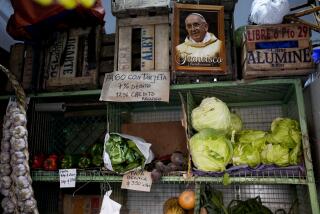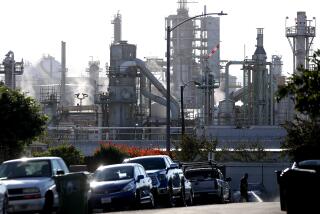At 15 cents a gallon, it’s the cheapest gas in the world -- yet Venezuela worries

A driver fuels up at a gas station in Caracas, Venezuela, before gas prices went up.
- Share via
Reporting from CARACAS, Venezuela — An air of caution and concern hung in the air as gasoline prices in Venezuela shot up Friday to 15 cents a gallon – a paltry amount elsewhere but a startling increase in this oil-rich yet financially-beaten country.
The price had been less than a tenth of a penny per gallon the day before, and history showed how abruptly Venezuela’s mood could shift when the price of gasoline was adjusted upward. More than 1,000 people were killed in a week-long riot in the late 1980s when there was an effort to raise prices.
But this time, Venezuelans seemed stoic in the face of higher gas prices, announced earlier in the week by President Nicolas Maduro. Even with the increase, Venezuelan gas is still the cheapest in the world.
Pedro Gonzalez, who operates a government-owned gas station in the poor Guarenas section of Caracas, where the 1989 riots began, said motorists were acting “normally. … There is enough inventory to take care of everyone. Nothing irregular has happened.”
Many in this oil-rich nation believe cheap gasoline is their birthright. In 1989, the effort to raise gasoline prices touched off a series of bus fare hikes that in turn provoked the “Caracazo” riots in the capital that left as many as 1,200 dead.
Fearful of stoking violence again, governments since then have only raised the price once, keeping it frozen since 1994. Inflation over the years has reduced the real value to virtually nothing.
But the subsidy has been costly. The state-owned oil company PDVSA estimates that artificially cheap gasoline was costing the government $12 billion per year. As much as 10% of Venezuelan gasoline is sold as contraband in Colombia and Brazil because of the huge profit potential for smugglers .
The price increase is expected to reduce the government subsidy by $2 billion, a savings that will be applied to importing more food, Maduro said. Scarcities of basic foods are forcing Venezuelans to wait for hours in line to buy groceries.
See the most-read stories this hour >>
The measure was part of a series of “adjustments” Maduro announced Wednesday to try to ease Venezuela’s severe economic crisis. At the same time, the central bank announced that the economy shrank 5.7% last year and that inflation averaged 190%, the highest in the world.
In a week of change, the Maduro government also announced a devaluation of the bolivar, the national currency, and a restructuring of the government-owned grocery chain.
But Antonio Olivares, a 45-year-old construction workers filling up up his battered sedan before heading to work, was skeptical the measures would lift a sinking economy.
‘The (gas price) increase will only bring more inflation, “ Olivares said. “ “It’s not going to solve our problems of scarcities and high cost of living.”
Analysts including Jose Manuel Puente, an economist at the IESA think tank and graduate school in Caracas, believe Venezuela remains in danger of defaulting on foreign bond debt payments later this year, despite Maduro’s austerity measures.
“These adjustments are very late and very incomplete,” Puente said. “The country has only $2 billion in cash foreign reserves, and these measures do nothing to help it meet debt payments coming due this year that amount to $11 billion.”
Special correspondents Mogollon reported from Caracas and Kraul from Bogota.
See more of our top stories on Facebook >>
ALSO
Pope Francis isn’t the only religious leader to give a surprising boost to contraception
Core inflation has biggest jump since 2011, but low energy costs keep overall prices unchanged
Why one consumer advocate blames a mysterious ship for helping keep California gas prices high
More to Read
Sign up for Essential California
The most important California stories and recommendations in your inbox every morning.
You may occasionally receive promotional content from the Los Angeles Times.













